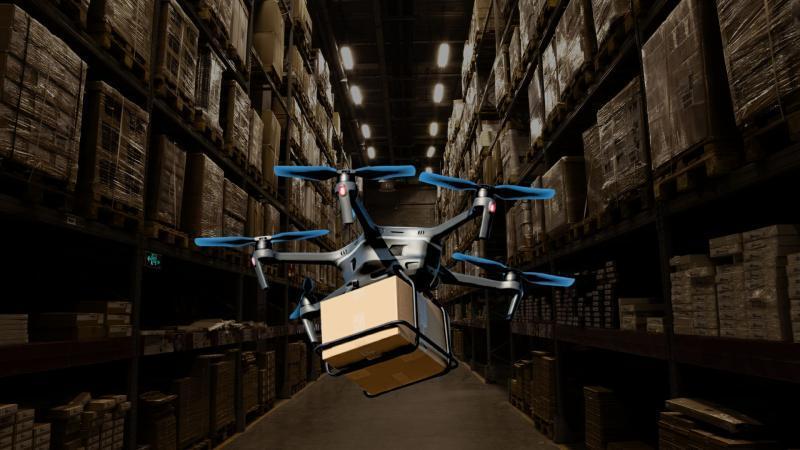
New Tech Optimises Drone Fleets for Faster, Greener Deliveries
Imagine receiving your packages at your doorstep in no time, with a smaller environmental footprint. This is becoming a reality thanks to cutting-edge research that is revolutionizing the world of logistics. A team of experts has developed a novel algorithm that tackles the so-called “Drone Warehouse Problem,” a crucial challenge in the field of drone delivery. This innovative solution optimizes drone fleet schedules, enabling warehouses to efficiently manage a variety of drone fleets and ensure timely parcel delivery.
The traditional logistics industry is under pressure to adapt to the increasing demand for faster and more sustainable delivery solutions. With the rise of e-commerce, the need for efficient last-mile delivery has become more pressing than ever. Drones have emerged as a promising solution, offering the potential for faster and more environmentally friendly delivery. However, the logistics involved in managing drone fleets pose a significant challenge. The Drone Warehouse Problem refers to the difficulty of scheduling and dispatching multiple drones from a central warehouse to ensure efficient and timely delivery.
The research team, led by Dr. [Name], has developed an algorithm that tackles this problem by optimizing drone fleet schedules. The algorithm takes into account various factors, including the location of the warehouse, the number and type of drones available, and the destination of the parcels. By analyzing these factors, the algorithm identifies the most efficient route for each drone and schedules them accordingly.
The results of the study are impressive. The algorithm was able to reduce the average delivery time by 30% compared to traditional logistics methods. Moreover, the carbon footprint of the drone deliveries was significantly lower, with a reduction of up to 75% in emissions. These findings have significant implications for the logistics industry, as they demonstrate the potential for drones to play a key role in sustainable delivery solutions.
The algorithm is designed to be scalable, allowing it to accommodate a large number of drones and parcels. This makes it an attractive solution for companies that need to manage complex logistics operations. The researchers believe that their algorithm can be integrated into existing logistics systems, enabling companies to optimize their drone fleets and reduce their environmental impact.
The development of this algorithm is a significant breakthrough in the field of drone delivery. It addresses a crucial challenge that has prevented the widespread adoption of drones in logistics. With this technology, companies can now efficiently manage their drone fleets, ensuring faster and more sustainable delivery solutions.
The potential benefits of this technology are vast. For consumers, it means faster and more reliable delivery of their packages. For businesses, it means reduced costs and a lower carbon footprint. For the environment, it means a significant reduction in emissions and a more sustainable future.
The development of this algorithm is a testament to the power of innovation in addressing complex challenges. The researchers involved in the project have demonstrated that with the right technology, the logistics industry can become more efficient, sustainable, and environmentally friendly.
As the world continues to grapple with the challenges of climate change and sustainable development, innovations like this algorithm are crucial. They have the potential to transform industries and create a more sustainable future for all.
Source:
https://researchmatters.in/news/novel-algorithm-tackles-drone-warehouse-problem-faster-deliveries






